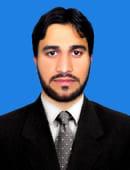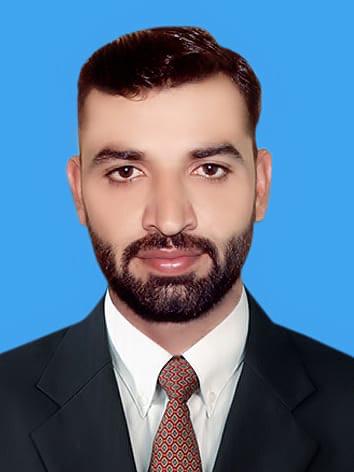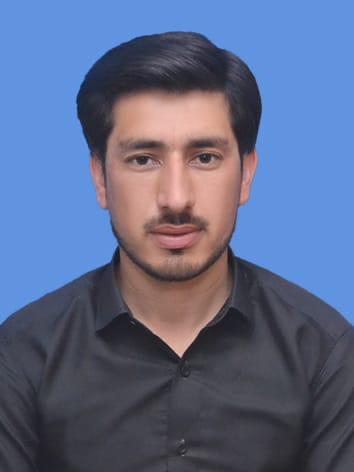About BS Radiology / Medical Imaging Technology
BS- Radiology / Medical Imaging Technology program is suitable for students seeking to expand their horizons and pursue a career field related to medical research & development or technological research in companies that lead to a breakthrough in diagnostic imaging. Upon completion of this program, students will not only acquire a broad & detailed knowledge in medical imaging which help them be a new generation radiologic technologist, but also will have the opportunity to develop important practical skills in organizing radiological department. The program is specifically designed to prepare the graduates to pursue their career in nationally and internationally growing healthcare industry.
What Do Radiologic Technologists Do?
Radiologic technologists are the medical personnel who perform diagnostic imaging examinations and administer radiation therapy treatments. They are educated in anatomy, patient positioning, examination techniques, equipment protocols, radiation safety, radiation protection and basic patient care. They may specialize in a specific imaging technique such as bone densitometry, cardiovascular-interventional radiography, computed tomography, mammography, magnetic resonance imaging, nuclear medicine, quality management, sonography or general radiography. The radiologic technologists who specialize in radiation therapy, which is the delivery of high doses of radiation to treat cancer and other diseases, are radiation therapists and medical dosimetrists.
Radiologic Technologists on the Medical Imaging Team
- Bone Densitometry Technologists
- Cardiac Interventional and Vascular Interventional Technologists
- Nuclear Medicine Technologist
- Radiographers
Faculty Members

Mr. Abdul Wadood
Assistant Professor / HOD
BS Radiology Technology (KMU); MPH (AUST); MS Radiology & Imaging Technology RIT (TIMES Institute, Multan)

Mr. Tayab Shah
Senior Lecturer Radiology
BS Radiology

Mr. Usman Shah
Lecturer
BS Radiology

Ms. Saima Gulab
Lecturer
BS Radiology
Program Learning Outcomes
- Evaluate clinical laboratory data and relate that data to various disease processes.
- Explain the concept of basic principles of medical sciences, physics & the associated applications.
- Establish basic quality control procedures, confidence limits, and normal ranges for new procedures or methods.
- Assess the reliability of laboratory results through correlation of data with common physiological conditions.
- Describe the methods of different medical imaging procedures.
- Practice basic & medical sciences applications & medical procedures in medical lab with optimal patient care & protection.
- Operate effectively and safely the different medical imaging modalities.
- Evaluate medical images of different modalities and differentiate between normal and abnormal appearance.
- Perform comparison studies on new or existing procedures and report results according to conventional scientific formats.
- Demonstrate basic management and research skills.
- Manage the operation of different medical imaging modalities effectively and accurately.
- Acquire an interpretable high‑quality image utilizing different imaging modalities.
- Carry out the optimal imaging examination based on assessment of patient conditions and safety requirements with ethical and legal manner.
- Communicate effectively with patients, colleagues, and other health professionals.
Scheme of Studies (4 Years)
| Name of Subject | Code | Credits |
|---|---|---|
| Biochemistry‑I | PMS-601 | 3+1 |
| Human Physiology‑I | PMS-602 | 3+1 |
| Human Anatomy‑I | PMS-603 | 3+1 |
| English‑I | PMS-604 | 2+0 |
| Pakistan Studies | PMS-605 | 2+0 |
| Computer Skills | PMS-606 | 1+1 |
| Total Credit Hours | 18 | |
| Name of Subject | Code | Credits |
|---|---|---|
| Biochemistry‑II | PMS-607 | 3+1 |
| Human Physiology‑II | PMS-608 | 3+1 |
| Human Anatomy‑II | PMS-609 | 3+1 |
| English‑II | PMS-610 | 2+0 |
| Islamic Studies | PMS-611 | 2+0 |
| Total Credit Hours | 16 | |
| Name of Subject | Code | Credits |
|---|---|---|
| Regional and Radiological Anatomy‑I | RAD-601 | 2+1 |
| General Radiology | RAD-602 | 2+1 |
| Radiation Sciences and Technology | RAD-603 | 2+1 |
| Pathology‑I | PMS-612 | 2+1 |
| Pharmacology‑I | PMS-614 | 2+1 |
| Communication Skills | PMS-615 | 1+1 |
| Total Credit Hours | 17 | |
| Name of Subject | Code | Credits |
|---|---|---|
| Clinical Medicine‑I | RAD-604 | 1+1 |
| Regional and Radiological Anatomy‑II | RAD-605 | 2+1 |
| Conventional Radiological Procedures & Clinical Practice | RAD-606 | 2+2 |
| Radiological Positioning & Clinical Practice | RAD-607 | 2+2 |
| Computed & Digital Radiography (CR & DR) | RAD-608 | 1+1 |
| Radiobiology & Radiation Protection | RAD-609 | 1+1 |
| Total Credit Hours | 17 | |
| Name of Subject | Code | Credits |
|---|---|---|
| Computed Tomography (CT) | RAD-610 | 2+2 |
| Mammography & Special Radiological Techniques | RAD-611 | 2+1 |
| Magnetic Resonance Imaging (MRI) | RAD-612 | 2+2 |
| General Surgery | SUR-608 | 2+1 |
| Interventional Radiology | RAD-613 | 1+1 |
| Clinical Medicine‑II | RAD-614 | 1+1 |
| Total Credit Hours | 18 | |
| Name of Subject | Code | Credits |
|---|---|---|
| Radiological & Cross sectional Anatomy | RAD-615 | 2+1 |
| Computed Tomography (CT) Procedures & Clinical Practice | RAD-616 | 2+1 |
| Magnetic Resonance Imaging (MRI) Procedures & Clinical Practice | RAD-617 | 2+1 |
| Therapeutic Radiology | RAD-618 | 2+1 |
| Nuclear Medicine | RAD-621 | 2+1 |
| Clinical Pathology & Radiological Presentation‑I | RAD-626 | 1+1 |
| Total Credit Hours | 17 | |
| Name of Subject | Code | Credits |
|---|---|---|
| Clinical Sonography | RAD-619 | 2+2 |
| Angiography and Cardiac Imaging | RAD-620 | 2+2 |
| Echocardiography | RAD-622 | 1+1 |
| Clinical Pathology & Radiological Presentation‑II | RAD-624 | 1+1 |
| Research Methodology | RAD-621 | 2+1 |
| Biostatistics | RAD-622 | 2+1 |
| Total Credit Hours | 18 | |
| Name of Subject | Code | Credits |
|---|---|---|
| Patient care & Management | RAD-625 | 2+0 |
| Bioethics | PMS-625 | 2+0 |
| RESEARCH PROJECT | PMS-626 | 0+6 |
| Seminar | PMS-627 | 0+1 |
| Total Credit Hours | 11 | |
| Total program credit hours | 132 | |
Fee Structure
| Semester | 1st | 2nd | 3rd | 4th | 5th | 6th | 7th | 8th | TOTAL |
|---|---|---|---|---|---|---|---|---|---|
| Admission fee (non‑refundable) | 25,000 | – | – | – | – | – | – | – | 25,000 |
| Tuition fee | 85,000 | 88,400 | 91,950 | 95,600 | 99,500 | 103,500 | 107,650 | 111,900 | 783,500 |
| Security fee (Refundable on Degree) | 10,000 | – | – | – | – | – | – | – | 10,000 |
| Total | 120,000 | 88,400 | 91,950 | 95,600 | 99,500 | 103,500 | 107,650 | 111,900 | 818,500 |
| Fee Head | 1st | 2nd | 3rd | 4th | 5th | 6th | 7th | 8th | TOTAL |
|---|---|---|---|---|---|---|---|---|---|
| Registration Fee (KMU) | 4,000 | – | – | – | – | – | – | – | 4,000 |
| Affiliation Retention Fee (KMU) | 7,500 | – | 7,500 | – | 7,500 | – | 7,500 | – | 30,000 |
| Semester Exams Fee (KMU): Currently Rs. 1,100 per paper and Rs. 1,100 per OSPE/OSCE. | |||||||||
• External fees, payable to University/Regulatory Bodies, are charged to the students as per actual fee of the University/Regulatory Bodies.
• All the fees are subject to advance tax of 5% as per Section 236I of Income Tax Ordinance (for non-filers only).
• NCS reserves the right to amend the fee structure owing to change in circumstances.
